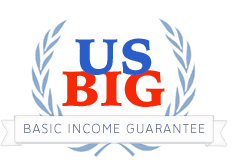Wondering About UBS
Wondering About UBS
By: Michael Anthony Lewis (Associate Professor of Social Work, CUNY)
In a Medium piece back in August of 2019, https://medium.com/bigger-picture/why-ubis-cousin-ubs-is-better-c08778c7c865, Inez Fernandez argued that Universal Basic Services (UBS) is preferable to Universal Basic Income (UBI). The services included in UBS would be, at a minimum, health care, housing and utilities, transportation, education, and a meal plan. UBS would provide these services to all free of charge at the point of service. Fernandez offers two main reasons for preferring UBS to UBI.
First, she claims a UBI which didn’t supplement a UBS would go toward paying for basic services. The problem with this is that a UBI going toward payment for such services is less efficient than a UBS. Take Andrew Yang’s $1000 a month proposal as a point of comparison.
Fernandez asks us to imagine two people. One has basic service needs totaling $500 a month, while another’s needs are $1000 a month. Under UBI, both would receive $1000 a month. But one would be receiving $500 a month more than they needed. This is inefficient. Why not have the government just pay $500, instead of half a grand more than necessary?
Fernandez’s second reason for preferring UBS has to do with another flaw she sees in UBI. Andrew Yang has proposed $1000 a month. But it’s not clear this is the right amount. UBI proponents have argued that UBI would have positive effects, such as providing more freedom, time for care work, time for hobbies, etc. Would $1000 a month be enough to produce these effects? As Fernandez puts it, “it is difficult to pick the perfect amount…some people will receive too much, and some people will receive too little.”
I’m a UBI supporter. But for this post, I’m going to, for the most part, put this to one side. I think UBS is an interesting and important enough proposal that it warrants serious consideration on its own merits. So, I’ll spend this post exploring some of the questions Fernandez’s discussion raised for me. The first has to do with the issue of need. How would we decide what people needed? Consider housing.
Suppose Rebecca lives in a coop, Greg lives in a rental apartment, and Heather lives in a one-story townhouse. Rebecca pays $2000 a month, Greg pays $500 a month, since he’s in public housing, and since Heather’s house is paid off, she currently pays nothing per month for housing. Under UBS, would Rebecca receive $2000 of housing services, Greg $500, and Heather nothing? Suppose the answer is “yes.”
Now imagine Rebecca has the chance to move into a brand new luxury condominium. She takes out a mortgage to buy the new apartment, and her monthly payment on this loan plus the monthly maintenance fee is $15,000. Greg gets a better job and, as a result, leaves public housing for another apartment that rents for $2000 a month. Suppose Heather decides to sell her current home and combine the money from its sale with a mortgage to buy a new house. Her monthly mortgage is now $1000. Under a UBS would the government now be required to provide Rebecca with $15,000 per month, Greg $2000, and Heather $1000? That is, have all of their housing needs increased?
We could ask similar questions about the meal plan part of UBS. Suppose Buffy cooks modest meals at home, Spike likes to eat out lavishly with friends, and Willow is somewhere in between. Buffy’s monthly meal cost is $1000, Spike spends a whopping $8000 a month, and Willow’s monthly spending is $3000. Under UBS, these amounts presumably would be measures of these folks’ food needs. But what if all of them started spending more money on food. Would the government then have to meet those needs as well?
These questions about changes in spending on housing and food are more difficult than they first appear. People’s spending on food and housing could increase because of inflation or due to more localized price increases in housing and food markets. So, you might say that if people started spending more on food, housing, and other basic needs, UBS should increase the allocation to meet those needs.
But the UBS design Fernandez seems to have in mind might be easily gamed. People might start spending more on housing, food, etc. not because of inflation or localized price increases but because they knew that government, in its attempt to meet their needs, would cover any increased spending on their parts. Of course, government, under a UBS, could evaluate spending increases to determine whether they were in line with measures of inflation (or localized price increases) or whether they exceeded such measures. But this kind of monitoring would add a layer of bureaucracy to UBS which could get unwieldy. Addressing these questions of need as well as what accounts for spending increases, might be at least as difficult as determining the right amount of UBI.
Fernandez doesn’t provide much detail about how UBS would be implemented. This should be clear from the questions I raised above. She does provide possible options, though.
First, she tells us that UBS could be government run or merely government funded. Second, she says that UBS could be sole provider or opt-in. I’m not sure I understand what Fernandez means by government run in contrast to government funded. I’m also not sure of the distinction she’s making between sole provider versus opt-in.
I assume a government funded UBS would involve government contracting with private organizations which would actually provide the services; government would just pay the bills. And I guess this would require some form of government regulation of those private agencies, adding another layer of bureaucracy to UBS. If government, instead of contracting out to private agencies, ran the UBS itself, would this require a new government agency? If so, this could add a layer of bureaucracy to UBS as well, probably more than would be added by contracting out. But whether we had a government run or government funded UBS, more bureaucracy could result, raising questions about how bureaucracy under UBS would compare to that under UBI. This is relevant because at one point in her piece, Fernandez claims that UBS might be less bureaucratic than UBI.
By sole provider I assume Fernandez means that government would be the only provider of a service, whereas opt-in means there would be non-governmental or private options folks could choose if they wanted to. This raises a number of questions, some of which can be appreciated by considering the UBS we already have—public education.
We might not think of public education as a UBS but it is—it’s a government service provided free of charge at the point of service. Since there are private schools and quasi-public ones, called charter schools, our public education system is arguably an opt-in UBS. What might happen if we banned all private and charter schools, making non-charter public schools the sole providers of education? Presumably, many students now enrolled in private and charter schools would be forced to attend a public one.
I’ve had a few students in my classes who’ve argued that a sole provider, government run education system would result in higher quality public education. That’s because with more middle and upper class parents being forced to send their children to public schools, they’d be more invested in such schools. And this would result in these more privileged parents using their resources to help improve the quality of education provided by public schools.
I think there may be something to my students’ argument. But the economist in me makes me wonder whether a sole provider system would result in too much monopoly power on the part of pubic schools. It’s not that I think education corresponds to the fictional perfectly competitive markets discussed in economics textbooks. I don’t. But I do think it’s possible that a public school system which didn’t have to worry, at least a little, about families having other options, might exploit their monopoly power by being very unaccountable to families of children attending schools in that system. In fact, some argue that this is already the case (see here: https://fee.org/articles/what-if-we-treated-public-schools-as-monopolies/).
I should add, however, that according to some (see Public Finance and Public Policy by Jonathan Gruber), the education market might be a natural monopoly. A natural monopoly is a market where it’s more efficient for there to be one large provider instead of a group of smaller ones competing for customers. If this model applies to education, that might justify allowing only a single firm to educate our children.
That firm could be a private one, subject to government regulation, as many municipalities do with utilities. Or the government could become the “firm” and educate children itself. This would be the public education sole provider model. There may be accountability reasons for choosing this model over the private firm sole provider one. That is, with government providing the service, the firm answers directly to the public. With a private firm doing so, there is an added layer between the firm and the public, resulting, perhaps, in the firm being less accountable to that public (https://www.crainsnewyork.com/politics/con-ed-defense-pols-ponder-public-takeover).
The public school system helps us see another question raised by the sole provider versus opt-in decision. I said above that our public education system is arguably an opt-in UBS. But perhaps that’s not true. It may be that a truly opt-in education system wouldn’t require parents who send their kids to private schools to continue paying taxes to support public ones. That is, they’d be able to opt-in or not regarding both which schools to send their kids to and which ones to pay for. If we had an opt-in education system in this broader sense, that might threaten the funding source for public education. It would depend on how many families sent their kids to private schools as well as how many of them decided not to continue paying taxes to support public ones. When Fernandez says an opt-in UBS would be an option, would opt-in mean those who opt-out of using the UBS would also be able to opt-out of paying taxes or other fees to support it?
Even though I’m a UBI supporter, nothing I’ve said here should be taken to mean I oppose UBS in its entirety. I support public education. I support Medicare For All, which can be viewed as a government funded universal system of health insurance. I would even support a system of free public transportation. And if someone came up with what I thought was a feasible way of providing housing and food for free at the point of service, I’d be open to “UBSing” those services too. I haven’t raised the questions above because I oppose all forms of UBS. I’ve raised them because I want proponents of UBS to think seriously about issues of policy/program design. Inattention to such matters could result in a well-intentioned UBS ending up being a mess. Of course, this applies to UBI as well.




Leave a Reply
Want to join the discussion?Feel free to contribute!